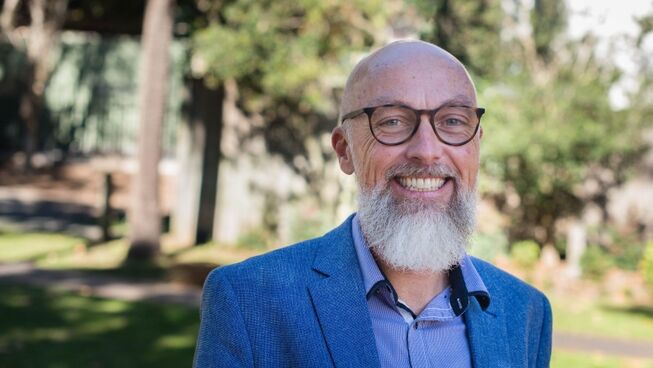Ethyl: A Killer of a Name

Anybody got a great-grandmother called Ethyl? Or perhaps you remember an old lady—a family friend perhaps—who had that name?
If you do, then you need to know that that kind and saintly lady (well I presume she was!), is named in honour of a man responsible for the deaths of more people in the twentieth century than any other person.
Horrific yes? I mean why would we place such a weight around someone’s neck? Here’s the thing, at the time of baby Ethyl being given that name, no one knew!
So, who was this nefarious character who was going around killing millions with impunity, while unsuspecting parents were having their daughters christened Ethyl?
His name was Thomas Midgley, a US chemical engineer, and for decades in the early twentieth century he was lauded for his achievements. Achievements that cost the lives of millions. More than that, achievements that put the whole planet at risk.
Midgely is the man responsible for putting lead into petrol/gas to counter the knocking noise that was plaguing internal combustion engines. Apart from being darned annoying, the knocking was damaging the performance and longevity, of the vehicles.
It was a great success. The automobile was about to take over the Western world, and would redefine how we live, where we live, and what we do with our leisure time and money.
And he called the name of the product, Ethyl, which is just a cuter and fancier, and less confronting, name than lead. (No one has a grandmother called 'Lead', do they?). As it was, in 1921 as the product launched, 62 thousand American girls were called Ethyl in honour of it.
Cue decades later, and millions have died or been affected by the lead in petrol. And all of that long after we knew what was going on and what it was doing. The last litre of leaded petrol was pumped into a car in Algeria in 2021.
But Midgley wasn’t finished. Oh no, he was just getting started. This great inventor also helped destroy the ozone layer, that thin and precious barrier around the earth’s atmosphere that buffers us from the worst effects of the sun’s fierce UV rays.
But he was no evil genius. He was no mad scientist in a lab coat on an island plotting the destruction of the world. Midgley was all about helping people. So when General Motors bought out the refrigerator company, Frigidaire, they immediately identified performance problems.
In just three days, Midgley and his team came up with a non-toxic gas called Freon, which solved the refrigeration problem once and for all, while punching huge holes in the ozone layer. The ozone layer had been discovered in 1917, but little was known about how humans might affect it. We now know of Freon as a CFC, a chlorofluorocarbon now banned in all manufacturing since 2003.
In my home state of WA, a place of fierce heat, the ozone layer was adversely affected by CFCs, resulting in WA being a skin cancer nightmare for many people. In fact WA is one of the skin cancer capitals of the world.
Here’s the point, or at least the first of the two points worth considering. Midgely did not predict the ripple effect of his actions. He died in 1955 years before the effect of the Freon problem became known.
Now he did know that lead was poisonous, but he couldn’t foretell the rapid increase in vehicle numbers across the world, a volume he was partly responsible for given how he delivered on the performance and comfort levels with his invention.
Stones thrown into ponds create ripples that go beyond our ability to control. It’s true of Ethyl, it’s true of Harry and Sally too. It’s true of each of us.
We may not all be Thomas Midgelys in terms of the adverse impacts of our actions. But let’s remember, we don’t get to control all of the outcomes.
It’s true relationally isn’t it? My own father, in leaving our family, set off a series of ripples he could not contain, ones that have had effects now for a couple of generations. He didn’t mean it to go that way, but it did.
And what about our words? The Bible, in the book of James, says this about our tongues, the words we say of others and ourselves:
"…the tongue is a small part of the body, but it makes great boasts. Consider what a great forest is set on fire by a small spark. The tongue also is a fire, a world of evil among the parts of the body. It corrupts the whole body, sets the whole course of one’s life on fire, and is itself set on fire by hell." (3:6)
Sounds just as destructive as Ethyl and Freon. Sounds like something bad started off small – perhaps even started off as a word that seemed wise to oneself – but it blew up.
And as we are finding in this social media age, if we haven’t got control of the words we use before we end up on Facebook or Twitter, then there’s little chance we will have control of them when we’re online.
And second, it puts to the sword that little saying we trot out in our society so often “It’s not hurting anyone”. We tend to think that the decisions we make have limited impact. Especially if those decisions are made in good faith for our own ends.
And also if we need to justify an action we wish to take. We can bend the truth to suit ourselves so that such a statement gives us comfort. And then mask the actual truth, by pretending the greater good is being met by our decisions.
That’s also true of Thomas Midgely. In factories producing Ethyl it became clear early on that lead was having adverse effects on people’s psyches. So much so it became known as “loony gas”. Midgely allayed the public’s fears by organising a PR campaign, and then in front of a media conference, washing his hands in Ethyl.
He then went on a long convalescence to the countryside to recover from lead poisoning. He knew! But it didn’t serve his purposes to admit it.
The poor decisions we make—which we can tell ourselves are good decisions—always have an impact, whether on others or on us. But we find a way to justify it anyway.
Author Grant Morrison nails it with the quote 'We live in the stories we tell ourselves'.
Meanwhile the ancient wisdom of the book of Proverbs in the Bible goes a step further: 'There is a way that appears to be right, but in the end it leads to death.' (14:12)
None of this put a pause in the step of Thomas Midgely however. Despite being crippled by the 1940 polio epidemic, at an American Chemical Society conference in 1944 he stated this about himself:
“Many men my senior may remain when I am gone, I have no regrets to offer just because I’m passing on, let this epitaph be graven on my tomb in simple style, ‘This one did a lot of living in a mighty little while’.”
That “while” was more “little” than he knew. Four weeks later he was dead at the hands of one of his own inventions. Not Ethyl. Not Freon. Midgely had used his inventor’s brain to construct a rig and pulley system to get him out of bed with his now useless legs. However one morning he fell out of his bed and strangled himself in the system’s ropes. He was 55.
Many died at the hands of his good-intentioned inventions, and so, in the end, did he.
Thomas Midgely, a killer of a name.


